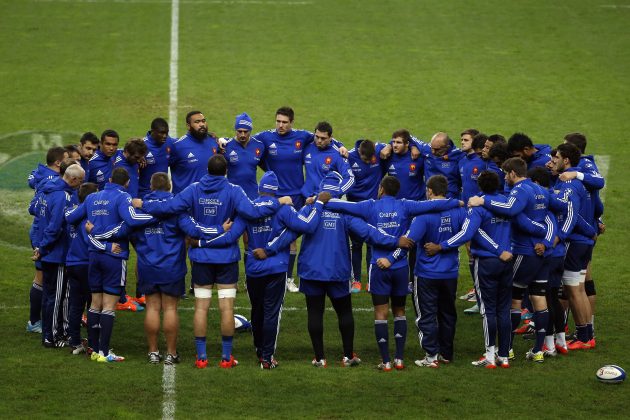With the election of Bernard Laporte as FFR President, a new firmer stance on the selection criteria to play for Les Bleus has been implemented
An era has ended in France. In an interview with Midi Olympique on Monday, national coach Guy Noves discussed his recent lunch with Serge Simon, the number two to new FFR president Bernard Laporte. By all accounts the pair discussed much over the dinner table, and one of the major issues that will have far-reaching ramifications was explained by Noves to Midi Olympique. “From now on players who are not French nationals can no longer play for France. It’s that simple. One will have to be in possession of a French passport to be considered for selection.”
Noves’ pronouncement should come as no surprise. One of Laporte’s major campaign issues during his 18 months of electioneering was a promise to cull the number of foreigners in the French game, not just in the two professional leagues but also in the national squad. Laporte conveyed the message in person to Bill Beaumont, president of World Rugby, when the two met in Paris on Tuesday. Describing it as a “political decision”, Laporte added: “One must not impoverish the Fijians, Georgians, Samoans and Tongans otherwise we impoverish the standard of international rugby.”

In agreement: The new diktat is said to have the backing of Guy Noves
This might seem rather hypocritical coming from Laporte, a man who coached Toulon to three consecutive European titles, with a team that, for the last of those three wins, in the 2015 Champions Cup final, contained just four Frenchman. And of course it was Laporte who pioneered picking foreigners in the France XV during his eight years in charge, selecting for example in the early 2000s, the likes of New Zealander Tony Marsh and the South African trio of Brian Brian Liebenberg, Steven Hall and Pieter de Villiers.
But now he’s the most powerful man in France rugby Laporte has the right to change his stance and adopt a ‘Do as I say, not as I did’ philosophy, and that is likely to please the majority of French rugby fans. No one is questioning the commitment of players like Scott Spedding – France’s outstanding performer in the 2016 Six Nations – or Kiwi prop Uini Atonio but the French would prefer their own countrymen to be wearing the blue jersey. It still rankles with many that de Villiers, having been developed by the French into a fine Test match prop, took his knowledge and expertise back to South Africa upon retirement and for the last five years has been the Springboks scrum coach. How’s that for gratitude?

Kingmaker: Bernard Laporte is now in the position to make big changes at the FFR
Noves explained to Midi Olympique that the new approach won’t apply to those foreigners already selected for France, four of whom played for Les Bleus in the recent autumn internationals: Atonio, Fijian-born wings Noa Nakaitaci and Virimi Vakatawa and Spedding.
In any case Spedding and Vakatawa have become French citizens, while Nakaitaci has applied and is currently waiting for the paperwork to go through. The tightening of the rules is likely to have the desired effect, although it won’t necessarily prevent foreign players winning a France cap in the future. To apply for French citizenship one needs to have lived in France for five continuous years and demonstrated a competency in the language and a knowledge of the culture.

Naturalised: South African born Scott Spedding has become a French passport holder
In recent weeks the French press have cited Montpellier’s South African lock Paul Willemse and Stade Francais’s Australian lock Hugh Pyle as two players who would have been eligible to play for France next summer before Laporte was elected president. But now the World Rugby three year residency rule is not enough and the pair – who arrived in France in 2014 – will have to wait a further two years to acquire French citizenship before they can be considered for selection.
Five years is what many in rugby, including World Rugby vice-chairman Agustín Pichot, would like the residency rule to be. Three years is too short and doesn’t require much commitment from the players. Five years is about right, and now in the case of the French comes with citizenship and a much deeper commitment to their adopted country.





